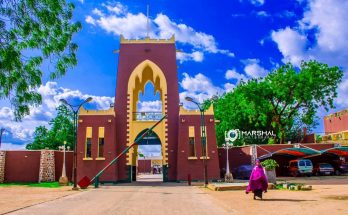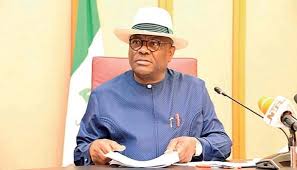Nothing else grabbed our media’s attention totally – within the last fortnight – than the alleged padding of the 2024 federal Appropriation Act, together with the abductions of over 400 pupils and other Nigerian citizens, in a North-east and two North-west states.
Abdul Ningi, a senator representing Bauchi Central Senatorial District, Bauchi state in the 10th Senate, had alleged that this year’s budget was padded by N3 trillion. Ningi, who has since been slammed with a three months’ suspension for washing (in the public) the linen of the Godswill Akpabio-led Senate, during an interview with BBC, Hausa Service, observed that the budget passed by their National Assembly, NASS, for the 2024 fiscal year was N25 trillion.
However, the one being implemented by the Presidency was N28.7 trillion, according to him. Like Senator Ningi, Hon. Abdulmumin Jibrin, then Chairman of the House of Representatives’ Committee on Appropriation, exactly eight years ago, alleged that the then House Speaker, Rt. Hon. Yakubu Dogara; his deputy, Yusuf Lasun; Chief Whip, Ado Doguwa and Leo Ogor, the then Minority Leader; attempted to pad the 2016 budget, with about N40 billion.
Former President Olusegun Obasanjo, in the turn of the new millennium – year 2000 – refused to sign the budget as passed by the 4th NASS. He claimed that the budget was padded with about N2 billion added to what the executive had first set aside for NASS, in that fiscal year.
Then, the ex-Nigerian leader also identified 15 other areas, which he said had not emanated from any federal Ministry, Department and Agency, MDA. According to Obasanjo, those 15 areas were simply inserted into the budget by the NASS. Again, excessive padding of the 2008 budget almost forced late President Umaru Musa Yar’Adua to decline assenting the appropriation document.
About 7,447 projects worth over N2 trillion were inserted into this year’s budget, according to BudgIT. How do we end this saga disguised in budget padding our “Distinguished Senators” and “Honourable Members” perpetrate yearly?
The first thing starts from the election day. Nigerians must ensure they elect to Abuja (as their federal representatives and senators) only men and women of integrity, who loathe greed and corruption. Those are the only category of people that will not preoccupy themselves with raping our budgets for their own pecuniary gains.
Second, Mr President, who presently is no doubt incorruptible, should not hesitate to decline giving his assent to any padded budget document, forwarded to him by our lawmakers.
Not minding their childish and feminine innocence, marauding terrorists penultimate week struck in Kaduna, Sokoto and Borno states. In four fell swoops, no fewer than 460 pupils, women and men were abducted, and ferried away to destinations yet unknown, at the time this write-up was being put to bed. Of course, our leaders and security agencies “vowed to rescue the students and other abducted citizens, alive and unhurt”.
Particularly, the latest incident at the Local Education Authority, LEA, Primary School in Kuriga, Kaduna state, is the not first and second time young and harmless citizens, who are Nigeria’s beautiful future are visited with horrors, in centres (schools) which are supposed to be sanctuaries.
It started in 2014, at Government Girls Secondary School in Chibok, Borno state, when about 273 female students were taken hostage by Boko Haram insurgents. GGSS Dapchi, in Yobe state, was the next in 2018. About 113 students of the Yobe school, on the night of February 19, 2018, were kidnapped. Save for one, Leah Sharibu, the rest of the abducted students were later freed, and reunited with their loved ones.
Salihu Tanko Islamic School in Tegina, Niger state, a GGSS in Zamfara, GSSS Kankara, in Katsina state, and Government Science College in Kagara, Niger state, among several other schools in the country, have also suffered the misfortune of having their students abducted at various periods, between 2020 and this year.
How can we protect and shield our students and other Nigerians from terror elements working for insurgent and bandit groups? While it is not out of place for the government to order our security forces to rescue the abductees, ending the spate of mass kidnapping in Nigeria will demand the government’s iron resolve.
Though experts are of the view that only a multifaceted approach involving short-term and long-term strategies will address the mass abductions’ vice in Nigeria, the federal government, also should do well to prioritise improving security infrastructure and intelligence capabilities. This will prevent kidnappings from taking place in the first place.
Another recommendation is the need to deploy our security forces to vulnerable areas, even as it is imperative for checkpoints to be mounted along known routes used by “kidnappers for ransom’. This will assist in launching swift rescue operations after abduction incidents.
We may not have been doing it before, but there is the need now for authorities to start investigating abduction cases promptly – so as to bring perpetrators to book. This is by enhancing the capacity of law enforcement agencies, through the training of their personnel. In addition, coordination among our security agencies should be improved, while ensuring consequences for security personnel conniving with terrorists to stage kidnapping attacks.
One other thing we need is the international cooperation between Nigeria and other countries, since most of the security challenges we are battling transcend national borders. To this end, the federal government should work with regional and international partners with regards to sharing intelligence. Together, they should also coordinate efforts to combat transnational criminal networks, and help to address the root causes of insecurity.
It is a common knowledge that corruption and governance failures have been known to exacerbate Nigeria’s security woes. This is in the form of undermining the effectiveness of law enforcement, and perpetuating social inequality.
Therefore, the government should prioritise efforts to curb graft. Good governance fostered by the spirit of accountability should also be offered to citizens by government officials. This is necessary to build confidence and trust in state institutions.
Experts also believe that the establishment of state police forces will play a significant role in deterring mass abductions. This is through their proactive patrols and presence in vulnerable areas, such as rural communities, highways and border regions.
The visible presence of state police officials, no doubt, also has the potential to deter potential abductors and provide a sense of security to the local population. Community policing initiatives, equally, can help empower communities to take proactive measures to enhance their security.
Nigeria, as a nation, and its enterprising citizens are passing through agonising hardship, worsened by deteriorating insecurity. The country’s life, in particular, has been one of an ugly kind, especially in the last two weeks.
If the prevailing national gloom and misery of the citizens must not linger beyond this period, then authorities – I mean the government and other critical stakeholders in our nation-building project – must start thinking of other effective and portent ways to permanently address the recurring and embarrassing acts of budget adulteration, together with the violent whisking away of our children from their school environments.
The solutions and recommendations herein this piece, definitely won’t be enough to rein in our lawmakers’ penchant for budget padding and deter brutal terrorists. More lasting measures are needed, and quickly too.
Mahmud, Deputy Editor of PRNigeria, writes via [email protected].




